Drug use and sex often go hand in hand. People have used drugs with sex for years, some to lower inhibition and enhance their sexual drive, while others to coerce victims into the act. Despite this long history, the combination of drugs and sex can have serious health consequences.
This article will discuss how drug use affects sexual health. We’ll also list specific substances and related sexual dysfunction.
Although illicit drugs are sometimes used as aphrodisiacs, they have detrimental effects on male and female sexual function. These effects can happen at any phase of the normal sexual cycle, including desire, physical pleasure, arousal, preference or orgasm. Statistics show that more than 30% of men and 40% of women reported some sexual dysfunction.
Common risks linked to sexual dysfunction include one’s health status and the presence of diseases like diabetes mellitus, genitourinary diseases, cardiovascular disease, chronic diseases and psychological disorders. But the connection between drug use and sexual dysfunction is increasingly recognized.

A National Library of Medicine report analyzed the sexual dysfunction in men who abused illicit drugs. The findings revealed that males who abused illegal drugs were prone to have decreased sexual desire, erectile dysfunction ED, and increased ejaculation latency. Increased ejaculation latency was seen in all abusers, while decreased sexual desire and erectile dysfunction occurred mainly in heroin, amphetamine and MDMA mono-users, respectively.
Drugs can make it physically difficult to have sexual intercourse. A man might become incapable of getting or sustaining an erection, and men and women may fail to reach orgasm. Sadly, this issue can persist even in recovery, with evidence showing that some people who abused drugs still had sexual performance issues even after one year of abstinence.
Many people abuse drugs for the aphrodisiac effects. However, these often wear off fast, leaving one with diminished interest in sex. The reason is alcohol and drugs affect one emotionally, which impacts their libido.
Additionally, abusing substances can be emotionally and physically draining, leaving one tired with little energy or interest in sex. Emotional and physical problems both cause a decrease in sex drive.
Drugs impair judgment. So when one is under the influence, they may end up participating in risky sexual behaviors. For example, they may engage in unsafe sex and contract STIs and even viruses like HIV or HPV that cause AIDS and cancer, respectively.

Inevitably, drug abuse leads to broken relationships. Many things can contribute to breakups, including emotional distance, promiscuity, isolation and even sexual dysfunction.
Stimulant like cocaine and amphetamines inhibits the uptake of norepinephrine and dopamine. When taken in low doses, these drugs can be a potent aphrodisiac. That’s because they’re believed to decrease inhibition, boost confidence and increase the sense of energy.
However, prolonged use may cause difficulty getting or maintaining an erection. This happens because these stimulants cause blood vessels to narrow, so blood doesn’t reach the penis.
Depressants like cannabis, heroin, alcohol, and benzodiazepines are also commonly used as an aphrodisiac to enhance sexual desire and functioning. But several studies have shown the adverse effects of depressants like alcohol on sexual arousal. When taken in large doses, these substances impair erection, decrease sexual arousal and the ability to ejaculate.
Marijuana prevents the smooth muscles in the penis from relaxing, making it hard for blood to flow in. Heroin and alcohol suppress testosterone levels, leading to decreased interest in sex. Alcohol also damages cells in the gonads and testes, making it hard to maintain an erection.
About 70% of patients with mental health issues like depression and schizophrenia experience sexual issues. It is sometimes difficult to distinguish whether the dysfunction is due to the illness or drugs used for treatment in these patients. But either way, drug use and mental disorders often co-occur. A person with performance anxiety may use drugs to lower inhibitions.
Conversely, one may use drugs to treat mental health issues but suffer sexual dysfunction as one of the side effects. Antidepressants, for instance, inhibit the desire, lead to ED and decrease vaginal lubrication, all of which affect sexual health.

While many women don’t notice any significant adverse effects when starting hormonal contraceptives, others experience lower sex drive. This is likely due to the decrease in testosterone levels. Birth control drugs inhibit the supply of free testosterone, a hormone that influences sex drive. It’s best for women who experience low sex drive due to contraceptives to seek medical advice.
Cancer and its treatments can have a significant adverse effect on the patient and their loved ones. Most cancer treatments can affect one’s sexual health. For example, the long-acting gonadotropin-releasing hormone agonist for prostate cancer causes hypogonadism.
Hypogonadism is when sex glands called gonads produce little or no sex hormones. Chemo drugs like cisplatin and bortezomib also cause nerve damage, making it hard to control erections. Prostate surgery might be a better treatment, but it also comes with a fair share of sexual issues.
Oral medications used to treat health conditions like high blood pressure, heart disease etc., can affect sexual functioning. Some impact desire while others impact the ability to become aroused or achieve orgasm – and the risk goes even higher for those taking several medications. Sexual side effects are often reported with meds like antidepressants, anti-hypertensives, anti-epileptics, blood pressure, antipsychotics, opioids, and anti-seizure.
Sexual dysfunction can impact one’s life. It can cause them to lose their real love, self-esteem and even the desire to live. Unfortunately, this may drive one to abuse even more drugs – for recreational use.
It’s therefore essential to seek medical help to address the drug use related to sexual issues. A doctor will help one get off of drugs that are affecting their sexual health. They will also offer treatment for ED, like a vacuum device, to help one get and maintain an erection.
The concept of ground score is simple. Someone leaves behind or improperly disposes of drugs or paraphernalia. Then, whoever finds the drug or item claims it, and it becomes theirs. Lighters, syringes, needles, pre-and post-injection swabs, masks, patches, pipes, filters and even the drugs themselves are common examples of a ground score.
Ground score is a pretty common occurrence around the country. But this doesn't make it any less of a nuisance. When left on the ground, drug paraphernalia pose a risk not just to the environment but also to humans. We'll look at these risks later on in this article. But first, let's make sure we are on the same page.
A ground score is any desirable substance that's left on the ground. In this case, it can be any drug paraphernalia that drug users leave on the ground after use, such as:

People who abuse substances - including street drugs, alcohol, and prescription drugs - are at an increased risk for dependence, addiction, or worse, overdose deaths. Drug use also has side effects that make it hard for one to act responsibly. As a result, many users either leave drug litter around or dispose of it carelessly, exposing the environment and people to wide-ranging risks.
Drug litter can cause serious health problems for those who come into contact with it. It can cause:
Adults, too, might swallow prescription pills and end up overdosing without knowing. Proper storage or disposal of drugs is the best way to avoid such predicaments.
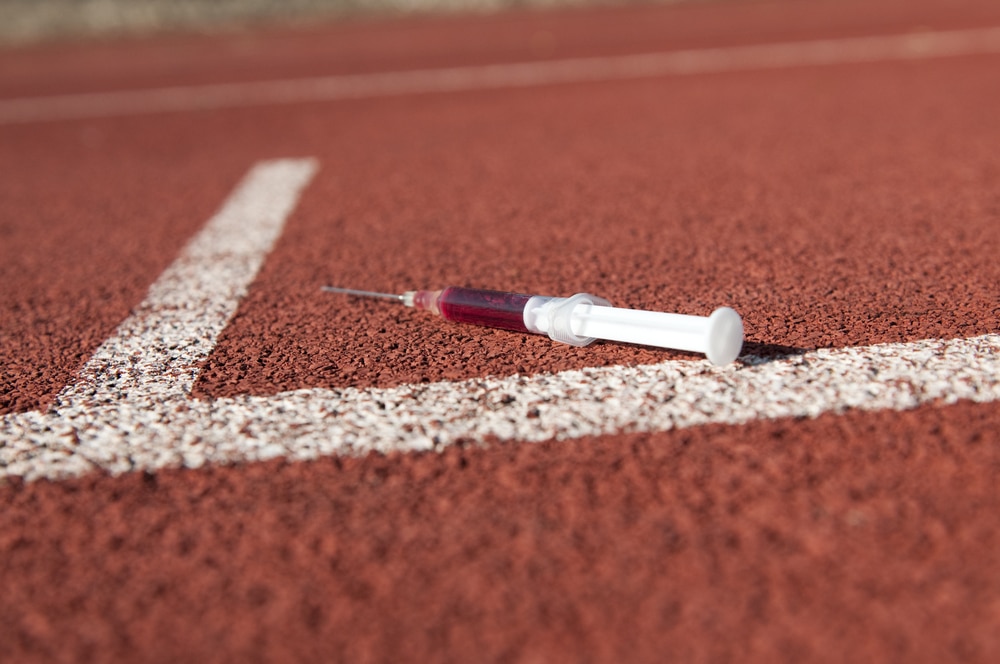
Drug litter can be found anywhere, including the streets, neighborhoods, schools, and so on. However, you are likely to find drugs at music festivals, nightclubs, parties, and so on. That's because party-goers indulge in illegal drugs and throw the remains all over the place. But you can also find drugs at home when a friend or loved one disposes of their prescription medicines inappropriately.

Whether intentional or unintentional, improper disposal of drugs and paraphernalia is dangerous to humans and the environment. Littering happens due to:
But since ground score poses so much danger, it might help to avoid it altogether. There are safe disposal practices that you should follow whenever you want to discard drugs and any material associated with the drugs. One of the safest ways to dump unwanted drugs is to take them to a drug take-back program. It will help if you do this as soon as you realize that you no longer need the drugs. The Food and Drug Administration recommends the following was to avoid drug littering:
Drug litter can be a gateway to drug abuse. Synthetic opioids, mostly manufactured in South America, are highly addictive and often lead to substance use disorders - both long-term and short-term. People, especially teenagers, might experiment with these drugs and end up using them more.
Drug use and misuse can cause side effects like increased heart rate and blood pressure, body temperature, paranoia, and hallucinations. Besides, drug dealers often cut drugs with a series of other substances, exposing one to the risk of overdose and overdose deaths.
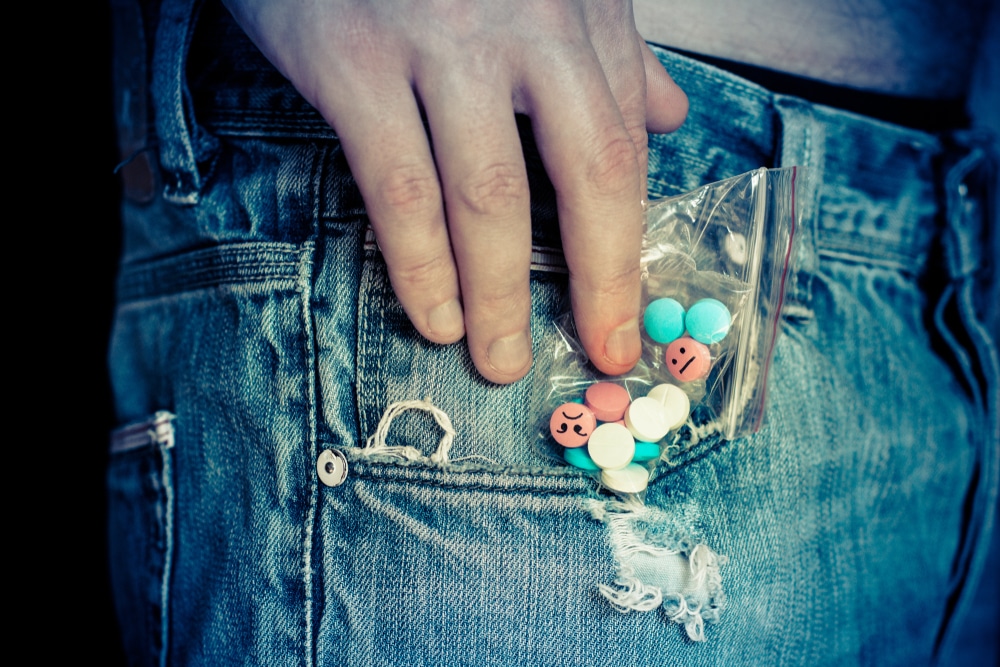
Whether prescription or illegal drugs, drug litter is a dangerous problem for society and the environment. To keep your neighborhood clean and healthy, ensure you dispose of anything related to drugs responsibly.
When a loved one is addicted to a certain drug or alcohol, you may need to stage an intervention to show that their actions are hurting them and those around them. It’s not necessary to involve the local department of health. An intervention can help you express your feelings constructively. It can also help you direct a loved one toward a support group, detoxification, or a doctor that can set them on a recovery path.
But staging an intervention can be tricky. Although you mean well, you may not know what to say. Your loved one might also deny they drink alcohol or abuse drugs, making it hard to open a conversation. That’s why it’s essential to prepare in well in advance, before you stage an intervention.
An intervention is where you take proactive steps to persuade a loved one to join addiction treatment. It comes in handy when the individual is unwilling to seek help or doesn’t recognize that they have a problem. An intervention gives you an opportunity:

The most important thing to note when it comes to interventions is that you are not in the shoes of the addict. You cannot fully understand addiction unless you have gone through it yourself. Struggling with drugs or alcohol consumption is rather complicated. Therefore, you must listen and keep an open mind throughout the process.
During interventions, it is also crucial that all those involved don't point fingers at either party. Interventions aim to make the addicts realize that they have a problem and need to seek treatment. Additionally, interventions let the addicts know that they have the support of friends and family.
This article is for you if you want to stage an intervention to deal with your loved one's drug addiction. We will take you through the step-by-step process to ensure that the intervention is successful.
Proper planning is paramount for a successful intervention. Therefore, you need to plan everything in detail and have the right mindset. Here is how to stage a successful intervention.

Before staging the intervention itself, you need to prepare yourself mentally. Ensure that you can air your sentiments without enraging the addict. You will also need to secure the support of friends or family.
Other than that, you have to be willing to live with the outcome of the intervention, whether it is positive or negative. If you consider all this and check all the boxes, you can move to the next step.
Researching on drug addiction and the effects of alcohol is important. This way, you can figure out which rehabilitation or treatment programs would best suit your loved one's addiction. You should also research treatment facilities or treatment centers where your loved one can receive treatment if the intervention is successful. Finally, you should also study the recovery process to know how to support your loved one properly.
Although you can stage an intervention by yourself, you should seek a professional interventionist or an intervention specialist. Alternatively, you can contact a doctor or social worker for advice. You will be surprised at how much easier the entire intervention process will be when you have a little bit of help.
As mentioned earlier, having the support of family members and friends is paramount. After all, one aim of the intervention is to make the addict aware that they have the support of those that care about them. Friends and family will form your intervention team. Be careful not to include anyone that struggles with addiction.
Remember to keep the team as small as possible. Having too many people present may overwhelm your loved one.

The location for the intervention can impact how your loved one reacts to the intervention. It is important that you select a place where the addict would be comfortable and not feel like you have cornered them. Their home or that of a close family member would be an ideal choice.
Those who attend the intervention need to write speeches detailing how the actions of the addict have affected them and the addict. The speeches need to be personal so that the addict understands the impact of their addiction on those they interact with. Remind them to avoid the blame game. Instead, they should word the speeches lovingly and be honest about the situation at hand.
To ensure that the intervention runs smoothly, you should have rehearsal. This way, members of the intervention team can read out their speeches, and you can correct them if need be. You will also ensure that emotions don't run high during the actual intervention and that there is no blame game.
Everyone wants interventions to be successful, but this may not always be the case. Despite having the best intention, your loved one may refuse to accept help. Therefore, you must manage your expectations and those of the intervention team.

If the intervention goes well and your loved one responds positively, you should listen to them. Listening does not necessarily mean you agree with everything they say. Most addicts are smart, and the chances are that they might try to convince you that it is not as bad as you think or that they have everything under control.
Do not let them coerce you. Listen to them, but be firm and try to push your agenda of them seeking treatment. If they agree to seek treatment, be supportive and walk them through their recovery journey.
If your loved one responds negatively, either by walking out of the intervention or being violent, you need to re-strategize and consider other options. If you were lucky enough to have even a little bit of their attention, ensure that you uphold your sentiments and enforce consequences.
When you enforce consequences, they are likely to realize the intervention was for their good and not mere threats.
Don't be discouraged if your loved one responds negatively. You tried your best, and your loved one knows that their actions affect you and others they care about. With time, they may consider seeking treatment.
Many people assume that those struggling with addiction have loose morals, weak willpower, or are unwilling to stop. But that is certainly not the case. Addiction is a brain disease. According to the National Institute on Drug Addiction, it is a disorder that leads to “functional changes to brain circuits involved in stress, self-control, and reward.” Other reputable bodies like the Institute of Medicine, American Medical Association, and American Psychiatric Association also recognize addiction as a brain disease. Does this brain disease result from some type of genetic disorder?
Since addiction is a disease of the brain, have you ever stopped to wonder why it affects some people and not others? As it turns out, some factors such as genetics may play a role in determining whether one is likely to develop a substance use disorder. The National Institute of Health reveals that up to 50% of addiction risk is based on genetics. One is more likely to experience addiction if they have a family member who has had an addiction.
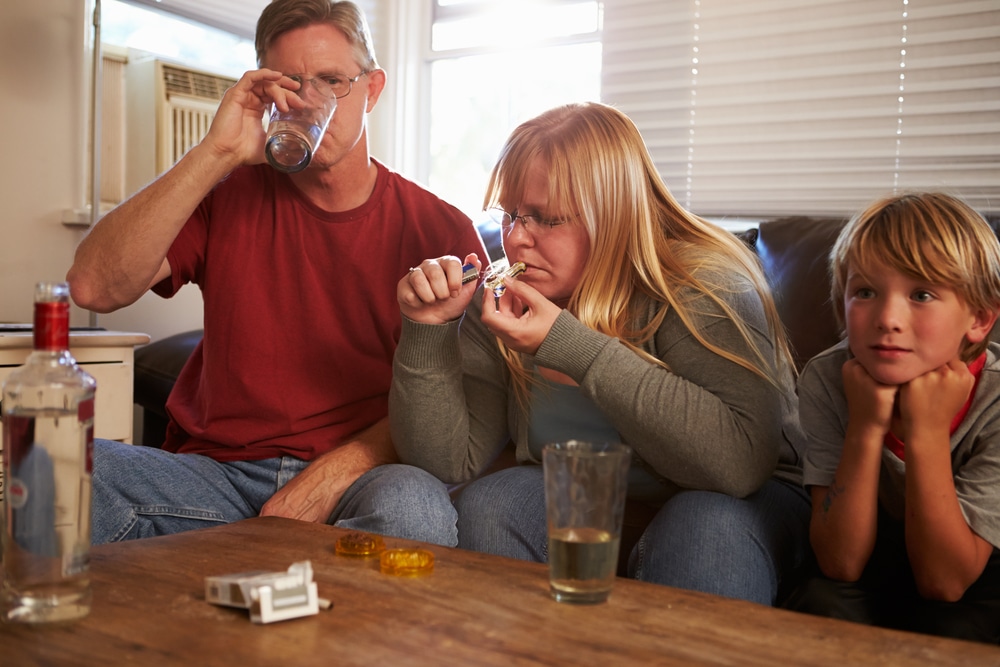
Drug addiction is a chronic brain disease. Like diabetes, heart disease, cancer, and other chronic illnesses, it can run in families. Children whose parent(s) have a substance use disorder are 2 to 4 times more likely to struggle with substance abuse issues of their own, later on in life.
The reason is that there’s an inherited component that can pass down to generations through genes. That’s why family history gives hints about one’s vulnerability to addiction.
Despite the higher risk, some people don’t end up with genetic addiction. It could be that they never inherited the genes for drugs or alcohol abuse or that their environment helped shape the specific expression of those genes. The heredity issue is also not as strong when it comes to extended family members like uncles, aunties, or grandparents who struggle with addiction.
Genetics is a risk factor for addiction and can increase the risk of drug and alcohol abuse in different ways. For starters, the genetic mutation that leads to changes in the brain’s function and structure may affect how a person responds to exposure from the substance. Secondly, a person may be genetically inclined to display temperamental and mental health issues that may escalate their chances of abusing drugs or alcohol.
A review by NIAAA experts reveals that genetic factors contribute up to 40-60% of the variance between people at risk of abusing alcohol. The genes that make one susceptible to addiction are alcohol-specific (like 1 S allele) like those that affect the brain’s reward center. Serotonin transporter polymorphism also influences addiction according to one review article dubbed Genetics, Inheritability Factors, and Addiction.
Substance abuse can change one’s brain to crave a particular substance. This is especially true for someone who uses drugs or alcohol for a long time. Even without a genetic aspect, one can still inherit a predisposition to substance abuse because of the culture they grow up in, or where use like binge drinking is encouraged.

According to scientists, some genetic predispositions may expose one to the dangers of addiction. However, not everyone with a genetic predisposition ends up being an addict. Conversely, some people can have problems even if no one in their family has substance use disorders.
Genetics is only one of the risk factors when looking at whether one has a higher risk of developing an addiction. Environmental factors like growing up with people who abuse drugs can also predispose one to the condition.
Scientists in the genetics of substance abuse field say that addiction and comorbid mental health disorders have similar neurological features. They also co-occur in more than half of those struggling with substance abuse. People with mental illnesses like anxiety, stress, depression, or social disorders are more likely to abuse drugs for various reasons.
Some use the drugs to get temporary relief from these feelings—others, for a sense of well-being and euphoria. After all, mental health and substance abuse issues affect the same parts of the brain, thereby elevating abuse potential.

Children that grow into stable homes with supportive parents tend to have a lower chance of using or abusing drugs. But if the home is unstable, has no structure, or has parents who abuse drugs or have a mental illness, then it’s highly likely that the children may use the abused drug. Young people who experience neglect or abuse from parents may also use alcohol or drugs to cope with their emotions.
The influence of friends is another common reason people end up with addiction. When one hangs out or around peers who use drugs, they are highly likely to give into the pressure of using. The availability of substances in a social circle can also affect one’s risk of developing an addiction. For example, large amounts of drugs being available in many social settings can cause one to start and continue using.
The age at which one starts to use drugs or alcohol can also be a risk factor. A survey by NIAAA found that people aged between 18 and 24 were most likely to have both drug and alcohol addictions. Abusing drugs and alcohol at a young age may also affect one’s brain development, exposing one to mental illness as they grow older and their addiction progresses.
Drugs such as meth, heroin, and cocaine tend to be more addictive than marijuana or alcohol. They also have a physically painful withdrawal phase, which can make one continue use to prevent the pain. This can increase the addiction process as well as the risk of serious health complications.
Many treatment options exist to help people with substance abuse disorders. If someone close to you needs help with the abuse of drugs or alcohol, you should help them find treatment. Health care professionals in addiction treatment facilities have the right resources to help treat genetic addiction. They will assess the person’s using pattern, their overall health, and design a treatment plan.
Since addiction often co-occurs with other conditions, your loved one may also need to undergo counseling and group therapy in addition to medications. Reputable facilities even provide after-care to help one in their journey to sobriety. Older adults with medical conditions such as a risk for heart disease or risk for severe illness should reach out today to conquer their drug or alcohol dependence.
What's the first thing that comes to mind when you hear the word meth? If you are like most people, it would probably be "illicit drug," or "club drug," etc. But that’s to be expected. Meth is a common street drug that never misses on parties, clubs, and even among peers. According to the National Institute on Drugs abuse, 1.6 million Americans used meth in 2017. But when is meth prescribed as a medical treatment? Does this happen often?
There actually is more to methamphetamine than it being a substance of abuse. In fact, the United States Drug Enforcement Administration classifies it as a Schedule II stimulant that makes it legally available through a non-refillable prescription. Meth is prescribed as a medical treatment for Attention Deficit Disorder (ADHD) and weight-loss. We'll dive into these and more treatments later on in this article, but first, let's make sure we are on the same page.
Meth is a strong and highly-addictive, white, odorless, and bitter-tasting crystalline powder. It is used as a stimulant and affects the body's central nervous system. According to the NIDA, meth was developed in the early 20th century from its parent drug, amphetamine. The drug was originally applied in bronchial inhalers and nasal decongestants.
Meth, like amphetamine, stirs a range of effects. It increases activity and talkativeness, reduces appetite, and triggers euphoria or a pleasurable sense of well-being. But unlike amphetamine, greater amounts of meth get into the brain. This makes it a more potent stimulant. It also produces longer-lasting and more dangerous effects on the central nervous system than amphetamine at comparable doses. That explains why many people misuse the drug.
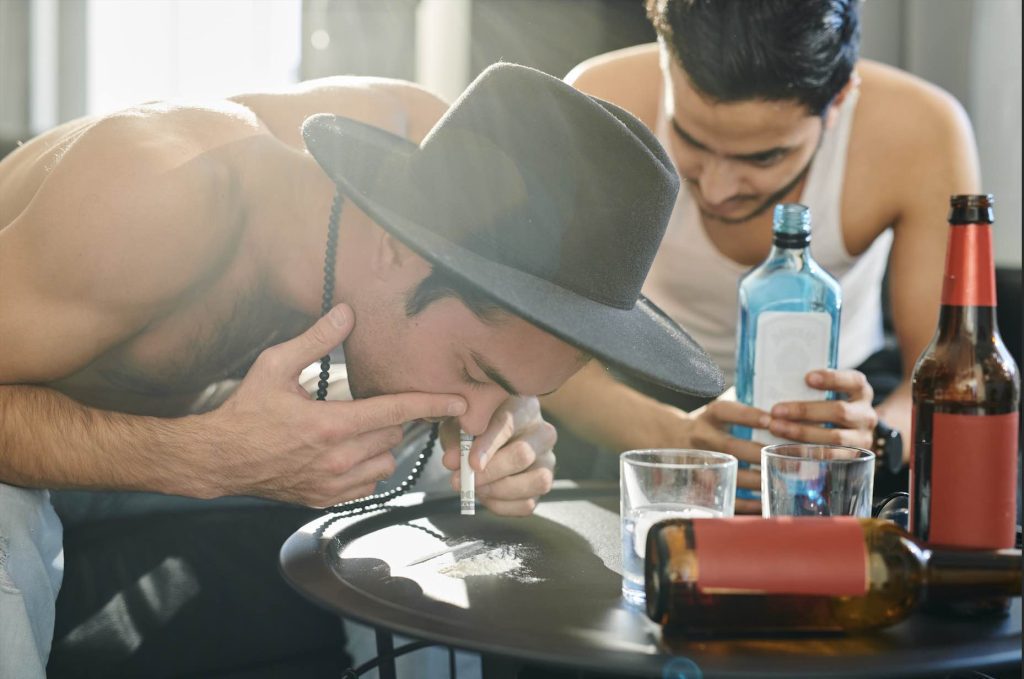
It's important to note that there are variations of meth. Crystal methamphetamine – a street version of the drug meth – is more potent. It is a common "club drug" that's hard to miss in rave parties and night clubs. Crystal meth also goes by other names like glass, ice, blade, chalk, black beauties, etc. Meth users will smoke it with a small glass pipe or swallow, snort or inject it into a vein.
Crystal meth is simply a poison that acts as a stimulant at first, but then it begins to destroy the body, systematically. It is linked to severe physical and mental health conditions like aggression, memory loss, psychotic behavior, and potential brain and heart damage. Again, the drug burns up the body's resources, causing a devastating dependence that can only be relieved by taking more of the drug.
If an individual continues to use crystal meth, they expose themselves to a wide range of mental and physical damage. A common example of this is meth mouth. Meth users often present with severe tooth decay, fracture or loss, and a host of other teeth and gums issues. One Clinical Oral Investigation study revealed that meth users had higher levels of periodontal disease and gingival bleeding. For most users, this damage is often irreparable even after recovering from their substance use disorder.
Meth was originally used as a respiratory stimulator and nasal decongestant. It was then used to keep the army alert and their enhance mood and endurance during the Second World War. But later, it became apparent that meth was highly addictive. In the 70s, it was added to the Schedule II list of controlled substances. Meth is illegal, save for when a doctor prescribes it to a very limited number of medical conditions. These include obesity, ADHD, and narcolepsy (off-label).

Stimulants are the first course of prescription drugs for ADHD treatment. Studies show that stimulants, like Adderall can improve ADHD symptoms in about 70-80% of people. Central nervous system stimulant medications work by increasing the amounts of norepinephrine and dopamine hormones in the brain. This, in turn, boosts concentration and lowers fatigue that's common with ADHD. Amphetamines and methamphetamine are good examples of stimulants used for ADHD treatment. Stimulants like meth increase attention and reduce restlessness in people who are:
Methamphetamine is an integral part of a complete ADHD treatment program. It's meant to be used along with other treatments like counseling. However, this drug is available only with a health care provider's prescription and is non-refillable. Meaning, a patient has to get a new prescription each time they need this medicine.
Along with ADHD treatment, doctors will occasionally give obese patients prescription methamphetamine as a weight loss drug. While the drug can curb appetite, its effects on the nervous system and metabolism also seem to weigh in on its weight loss abilities. But because of the drug's addictive nature, there's an increased risk of addiction. So when physicians prescribe it, it's usually only for a short period. Methamphetamine is issued alongside other interventions like exercise and diet.

As mentioned earlier, only a doctor can prescribe this drug to patients. The doctor will weigh the pros and cons of using the drug and determine whether or not it's safe. Patients should inform the doctor about:
Doctors consider a lot of things before prescribing methamphetamine. But despite this, there's always an addiction risk when someone abuses the drug or takes drugs prescribed for another person.
For example, a patient may notice that the original dose no longer works. So they increase their dosage, creating tolerance that leads to addiction. Or the patient finds they no longer need the drug. But once they stop, they experience intense withdrawal symptoms that often compel them to take more of the drug.
Common side effects that are linked to prescription meth include:
A patient should contact a doctor as soon as they notice one or more of these side effects.

Meth addiction is one of the hardest drug addictions to treat. But treatment programs exist to help patients with addiction problems quit using and go back to leading a healthy life. Treatments can also help patients struggling with withdrawal symptoms. Recovery from meth needs a holistic treatment plan that includes detox, counseling and therapy.
2020 has been a difficult year for us all. But while it has been tough (well, downright hard), it doesn’t mean we should overlook the good moments that it has brought us. As its end draws near, let’s reflect on the good things to be thankful for that have happened this year and be grateful for each one of them.
There’s so much to be thankful for, especially if you’ve been living through addiction recovery or other life-changing issues throughout this holiday season. But if you can’t think of one or more reasons right off the bat, then here is a list of things to be thankful for this year, to serve as a reminder.

After everything you have been through, you cannot take it for granted that you are alive. Many addicts end up dealing with worse health complications or even death. But here you are, all healthy. Even if you feel a little bit sick, or too lazy to get out of bed in the morning, you still have the option to do so. Be thankful that you wake up every morning able to start your life and enjoy each day.
Hygiene and health are often the last things on the mind of someone who’s using – and you probably weren’t any different. But now, you are self-aware and self-conscious. You also have enough time to focus on yourself. You bathe, eat healthy meals, wear clean clothes, and get enough night sleep – all of which transform your overall outlook. When you look good, you are happier and even more confident. You can go out, hang with friends, take selfies, and everything else without fear of judgment – an excellent reason to be thankful this year.
You ought to be thankful for your family who has stood by you throughout your struggle with addiction until you made it to the other end. Be grateful even for those with whom you had strained relationships during your addiction, but managed to patch things up through family therapy and stuff. Nothing comes close to having gratitude for the people you care about in life. When you love your family and friends, you are inspired to continue in recovery.

You have all the reasons to be thankful for the good mornings. These hardly came by when you were using because then you had to deal with bad hangovers, body sores, and regrets from the things you did while high. Now, you can listen to the birds chirping and even catch the sunrise. You can also organize your days and get things done – even if that means binge-watching your favorite series.
Now that you are sober, you have clarity in your head that helps with productivity. You also have high energy levels and lots of free time to focus on school, work, or personal projects. Be thankful that you now have a chance to rebuild your life and make the most out of every opportunity that comes your way. You couldn’t achieve all these if you were still using drugs.
Drugs and alcohol are expensive. Like many other users, you likely spent about $4,500 on alcohol, $7,000 on marijuana, $8,000 on cocaine, $54,000+ on heroin, or $3,500-70,000 on opioids every year. This is way too costly, especially if you weren’t working for or lost your job due to addiction. But now, you don’t have to spend more money on drugs and alcohol. You also don’t worry about getting that money. And the best part is you aren’t putting a strain on your loved ones and society. Instead, you are rebuilding your life and even getting to support them. It sure feels good, right?

Staying sober isn’t easy – it needs discipline. In a world where we have no control over our peers, environments, and circumstances, consciously choosing not to use drugs when given an option is a surprisingly energizing and powerful feeling. This type of control builds character, self-confidence, and offers a healthy boost to your ego. So, grab a glass of fresh juice, raise it to the skies and say, “I’ve got this.”
Continued substance abuse affects the structures and functions of the brain. This impairs thinking skills and decreases attention span and memory. But the good thing is that brain is a remarkably adaptable organ. It can repair itself greatly and regain its ability to regulate moods, memory, and bodily functions without the substance. So, you have a reason to smile now because you don’t have to stress over what you did the previous night or struggle with a foggy and unreliable memory. You’re now sharper and alert and will recall things better.
Many studies show a correlation between alcohol and mental health disorders like anxiety, stress, depression, etc. Many people use drugs or alcohol to either forget or solve underlying problems – though this only worsens the situation. You probably did the same. But now that you have gone through the healing process, you know that there are better ways to solve issues – like talking them through or seeking counseling or even exercising. This is too big an achievement that shouldn’t just slide – be grateful about it.
This is a great time to be thankful for your good friends. Chances are you were inconsiderate of their feelings or ignored whatever advice they gave while you were abusing substance. But some of them stood by your side and still do. Be grateful for the effort they put into keeping up with the relationship and seeing that you are a better version of yourself.

Last but not least, you want to be grateful for yourself. Be thankful that you believed in yourself, that you did all the hard work, that you never quit, that you chose to do what’s right. It wasn’t is, and it still isn’t – but you’re hanging in there.
"How does it feel being sober?" might seem like a weird question to someone who has never done drugs. But for those who struggle with withdrawal symptoms or are just fresh from a treatment program, the question couldn't possibly get any more real than this.
Consider two parts of the brain, the prefrontal cortex and the amygdala. Amygdala registers the memory and emotional reactions like fear, intrigue, or worry. The prefrontal cortex, on the other hand, controls inhibitions, strategizing, and focus. These two rev up during traumatic events – including the daily traumas of living in a world with constant violence, fear, and threats. But for some, the revved up effect doesn't cut it. So they turn to drugs to help escape, cope, or manage life situations.
"The thing with alcohol and I would argue a lot of drugs, is that at the root of it is a lot of pain," said Alicia Valentin, a recovering alcohol abuse patient. "We don't use to get drunk or high. Sure, that may have been it at the beginning. But really, it was to cover pain, so we wouldn't have to deal with anxiety, depression, abuse, sadness, grief, loneliness, self-pity, and anger."
Alicia was responding to the question, “how does it feel being sober?” On Quora.

Alcohol and drugs can give one a fleeting sense of euphoria. They can also take one from their present state of being or help them detach from reality. But as you and I both know, this is usually a temporary fix. Drugs and alcohol produce rapid and large amounts of dopamine into the brain. Basically, they hijack the brain's normal reward/pleasure center, directly stimulating it with readily available dopamine. Unfortunately, this dwarfs the ability to release dopamine from smaller but sustainable sources, like hanging out with friends, watching a nice movie, or hitting a target, and so on.
So, it makes sense to wonder what it's like being sober after using for a while – or longer. This article will dive deeper into how people feel while they mentally and physically detox from substance abuse. But before we do that, you should know that life does get a thousand times better when sober. Here are some perks of being sober:
"One of the most important words in your question is "feel". I used to drink to numb myself from the pain. Now that I'm sober, I feel things. I feel happy. I feel sad. I feel frustrated. I feel the whole gamut of feelings," responded Dana M Dietz, a Quora member, who has been sober for eight years.
People abuse substances to try to escape their emotions. Drinking or using drugs can offer temporary release but comes with a hefty price. Abuse and addiction can destroy every good thing in someone's life to the extent where all that's left is them and their substances of abuse. Drugs and alcohol numbs their emotions that they hardly feel anything anymore.

But when they’re in addiction recovery and no longer abuse substances to conceal their emotions, they experience a perception shift that may result in an emotional rollercoaster. It may take a little getting used to, to manage emotions and lead a happy life. Some common examples of extreme moods that people experience in recovery include:
A person may feel lonely during recovery because their support system is suddenly taken away. In many cases, those who abuse drugs and alcohol surround themselves with other users. So, until they find support networks to replace their old ones, they may feel lonely. Loneliness is often accompanied by powerful emotions like depression, anxiety , or panic. Since loneliness can't be treated with medications, recovering patients should learn to be comfortable in their skin without escaping to substance use. Solitude can be an excellent opportunity to recharge the brain, discover new passions, and learn new skills.
From mended relationships to staying sober to savings to new life and everything in between, there are definitely plenty of things to be happy for. Those who go through treatment successfully report feeling happy and optimistic about their new life. They feel good because they've managed to regain control of their lives. They feel good because they get to wake up in the morning without swollen hands or broken feet or with a terrible headache. They feel good because they no longer have to deal with shaking or getting arrested.
"Sometimes, I feel exhilarated, happy, joyful," Alicia said."Most days, I feel clear-headed. Able to tackle things. I used to lay awake at night, wondering if I was dying or afraid to sleep because I was afraid I would die. I would feel an intense amount of guilt. Guilt for hiding my alcoholism from my partner. Guilt for not having any friends … for being shut-in," she added.

Awkward might be the last thing that someone recovering from drug abuse expects to feel. But as it turns out, it is a pretty common feeling. People use drugs and alcohol to ease their anxieties or feel comfortable in their skin. But now that they aren't using anymore, they may feel uncomfortable or socially anxious during the early stages of recovery – sometimes even beyond. But the good news is that the awkwardness will eventually wear off (or lessen).
“Drunk me didn’t have to worry if I was alone at a party because drunk me didn’t abide such things. Drunk me didn’t worry if she belonged, or said the right thing, or had to have small talk because drunk me just handled that. Drunk me had loose neck muscles.” Read one post. “So now I’m sober, and I have zero choice but to be me in all situations. There is no escape route, or greasing the wheels, or magic potion that makes people less terrifying, or me more “socially normal.” I can’t do anything about who I am, which is perfect because we should all be so lucky to be ourselves in public,” it continued.
Many people drink to feel comfortable in social situations. However, in most cases, they end up too drunk and say stupid things that they can't even recall the following day. Ironically, when they go through treatment and sober up, they learn to like themselves and trust what they say or do in public. Some even start preferring to go out and be with people and are no longer shy or anxious.
"The important thing to know is that life will not be all candy canes and buttercups when you are sober. Life happens. Good things and bad things happen. The wonderful thing is that you learn more about yourself as you learn to cope with these feelings. Most people I know are grateful alcoholics. They are much better off for having had to deal with their alcoholic issues," concluded Dana.
Emotional sobriety stemmed from Alcoholics Anonymous, the 12-step program for those struggling with alcohol abuse. And while it is a challenging, long-term, and ever-changing process, it's worth it. Those struggling with emotions can benefit from working with addiction professionals in a good treatment program. No one achieves perfect emotional sobriety. The most crucial thing is to keep working toward greater emotional awareness, better balance and use of coping strategies that are productive and healthy.
Biophysics is a field of science that applies methods and theories of physics to understand how biological systems work. It seeks to explain how life molecules are created, how different parts of a cell function, and how body systems – like circulation, brain, immune, etc. – work. Rehabs are now using the biophysical addiction treatment approach to create a powerful remedy that not only offers long-term effectiveness but one that addresses the physical emotional and psychological aspects of substance abuse.
Addiction does significant damage to an individual’s mental health, physical health, and overall well-being. Traditional rehab systems do a great join of arming these individuals with the right tools and resources to overcome addiction. But still, cases of relapse after 12-step and other conventional treatments are widespread. But the good thing is that more and more treatment centers are now incorporating biophysical addiction treatment programs that cater to individual needs, as opposed to taking a one-size-fits-all approach.
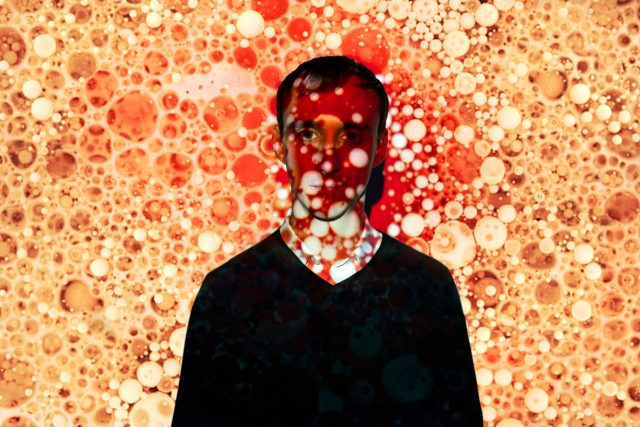
Biophysical drug rehabilitation looks at the whole-person health of an individual. This can help facilitate lasting change in the patient's life.
Biophysical rehabilitation programs use physical principles and methods to solve biological problems – like drug or alcohol abuse. Substance use overloads the body with toxins that disrupt its delicate balance, leading to damage to different processes and systems. Biophysical treatments are designed to reverse this damage that often occurs on the cellular level. It allows patients to regain balance and restore the body’s optimal functioning.
Biophysical treatment bases its model on the concept that life-long sobriety only happens when treatment is done at a physical, mental, and cellular level. It not only seeks to achieve sobriety but also to arm the patient with the necessary skills and mindset to have an optimal state of health for years to come. When the body is devoid of toxins on the cellular level, the treatment model suggests that both the physical and mental cravings will cease.
Relapsing is part of the recovery journey. But unlike the traditional programs which suggest that addiction is an incurable disease, and that relapse should be treated with more drugs or medication, biophysical treatment rehabs have proven that addiction is curable. The latter has shown that patients can experience permanent recovery using alternative treatment modalities.
Biophysical treatment centers report the highest success rates. This is partly because the non-traditional, non-12-step approach treats patients holistically. They do much more than offer one-size-fits-care or weekly follow-up meetings or limited patient success tracking. The other reason is that the programs run for around 90 days (or more), giving patients enough time to heal physically and mentally.

Using more than just the 12 steps and a higher power, biophysical drug addiction treatment aims to heal the whole person, both mentally and physically.
Rather than treating a single facet of an individual, the biophysical treatment acknowledges that each person is different, and their addiction problem revolves around the total of their experience. That’s why the model focuses on both the physical and physiological aspects of addiction. The first part of the program involves healing the physical aspects through detox. And the second part addresses mental health concerns.
An exciting yet incredible aspect of biophysical therapy is that they are often 100% natural programs. Unlike the conventional rehabs that use drug replacement therapies or medications to wean an individual off drugs, this program takes a drug-free approach to improve the health and well-being of the patient. These rehab facilities provide long-term and residential treatment programs that deliver all the essential elements for complete substance abuse rehab.
The module uses unique sauna programs to address the biochemical and biophysical imbalances. It also uses social education along with other methods that include light exercise, nutritional supplements, and counseling to help patients achieve long-term sobriety.
Medical sauna procedure is not only a great way to de-stress and relieve stress, but also release chemicals from the body. The sweating process gently and safely releases toxic chemicals. Medical studies show that most toxins can be expelled through the skin, relieving the burden on the liver and kidney. Biophysical treatments use sauna programs to detox their clients.

Counseling is important in any addiction treatment program, as it helps address any mental health issues that may be occurring.
Since substance abuse and mental health problems often co-occur, detox alone won’t cut it. That’s why rehabs use different types of therapy, like cognitive behavioral therapy and family therapy, to treat the physiological aspect of addiction. According to the National Institute on Drug Abuse, behavioral therapies provide incentives for patients to modify their attitudes, increase their life skills to handle triggers, and remain abstinent.
Many people with substance use disorder don’t eat well-balanced meals. So, in most cases, they will lack essential nutrients that are critical to overall health and recovery. Biophysical treatment centers offer a nutritional supplement to help ease withdrawal symptoms like irritability, depression, and fatigue that are common in patients with nutritional deficiencies. In his book dubbed Biochemical Individuality, Roger J. Williams, PhD., explained that rats that lacked specific vitamins consumed more alcohol than their healthier counterparts. But once the deficiencies were addressed, the consumption was lowered.
Exercise provides vast benefits. In addition to helping patients structure their days and provide a general positive feeling, exercise helps heal the body and brain. Research shows that exercise helps heal the body, even among healthy individuals. But it’s even more beneficial to recovering patients as it increases the number of new nerve connections in the brain. This allows the brain to recover from the harm that the substance had caused. Biophysical rehabs offer different kinds of exercise, including yoga, meditation, walks, and so on.

Light amounts of exercise can help heal both the body and the mind after a long-term struggle with drug or alcohol addiction.
Once the treatment is over and the patient is discharged from the facility, most biophysical rehabs offer two or even more years of program follow-up to ensure long-term success. The same cannot be said for traditional programs that provide short-term follow-up and rarely track progress.
Most substance abuse programs treat addiction symptoms with more medications (for mental illnesses and withdrawal symptoms). Biophysical rehab centers address addiction using a holistic, biophysical approach. These centers recognize that drug therapy sometimes leads to relapse and that many patients resist the treatment for apparent contradictions. So, they provide a different approach that offers:
The natural approach is safer and effective in addressing addiction. Once all drug residues are eliminated from the body, the patient can then focus on clearing their mind and working to ensure they stay sober.
The main focus of biophysical rehab treatment is to give individuals more abilities in life. This is achieved by integrating skills and cognitive therapy that lets the patient raise their awareness and make pro-survival decisions. Through treatment, the patient gets to understands why they started abusing substances and are armed with skills not to fall back to the trap. They are also empowered to take control of their lives and communicate better, just so they can associate better with people.
Have you ever told a story about someone doing something distasteful or illegal, yet that someone was you? Or have you felt the need to pose a question as another person to stir some reaction or get specific feedback? If yes, then you are no stranger to SWIM.
SWIM is an acronym for "someone who isn't me". Many people use SWIM when telling some story about them doing something unpleasant, to avoid reprimand. They say something like, "So and so got drunk and hit a stray dog." Or "SWIM ate an entire bag of oranges when stoned and now they have been on the toilet with running stomach for the last hour." Usually, they believe it would provide some identity concealment or legal protection when talking about something they should not be admitting to.
Those who use SWIM assume that they can say pretty much whatever they feel like in an online forum without any social or legal consequences. Or that they could get away with it because they are only reporting what someone else did.
This article delves deeper into the SWIM culture and why it's widespread among young adults, especially those using illegal drugs. We'll also talk about how young people perceive the risk of their participation in a public forum and how they manage to conceal their identity.
SWIM is often used to avoid self-incrimination in contexts discussing drugs and alcohol use. It's also used in places where criminal acts occur to "avoid" legal action. The "M" in SWIM is sometimes replaced with a "Y" for you, so, SWIY instead of SWIM. Someone who isn't you is mostly used when one is questioning the other. For example, "SWIM loves using drugs. How much does SWIY pay to support his habit?"

Online forums can be a great way to get information or even social acceptance for your actions or thoughts. This can be both a good thing, and a bad thing.
SWIM and SWIY are all the rage these days. People use them in forums, social platforms, and even when talking to other people. They do it to try to save face and avoid judgment. In some cases, they use these acronyms to protect the board. Some boards don't allow anything illegal or linking to unlawful material. Other boards prohibit "confessions." Members cannot start a thread admitting they are abusing drugs and so on. So, they use SWIM or SWIY acronyms to avoid being shut down.
One Reddit user was curious about why people who want to talk about drugs on online forums use SWIM. He asked why people wrote things like. "SWIM wants to know how blah blah blah."
A majority of responses dismissed SWIM as lame. "I don't get it … do they realize saying SWIM doesn't change anything and that feds aren't looking to bust forum users," read one post. "It stands for the stupid way to incriminate myself," read another. "It is policy to use it on some forums. It's stupid, but some places require it," added another.
But this doesn't stop people from using SWIM. The reality is many people would rather hide face when talking or writing about something they deem shameful or unpleasant.
People use the internet to find drug-related information, prescription drugs, and novel substances marketed as "legal highs." After all, the internet offers a convenient way to access this information and products. It also ensures anonymity – especially among those who want to maintain their privacy for fear of judgment or incrimination.

Dark, online forums are the perfect place to speak anonymously about your addiction to drugs or various other criminal activities.
Anonymity serves as immunity for those concerned about potential legal and social ramifications of revealing stigmatized or illicit identities or behaviors. It also facilitates the creation of social support groups based on stigmatized identities.
Those struggling with mental health or substance abuse issues use online forums for a range of reasons. These include information exchange, social support, friendships, convenience, and even recreation.
The forums are managed by peer leaders who moderate content and may remove members who do not comply to set rules. Rules are meant to ensure members do not deviate from the forum's focus, and that people coexist in harmony.
Online forums allow users to present themselves anonymously. They can also read comments while remaining anonymous, or take part in the conversation using a pseudonym. People prefer remaining unidentified when using online forums, especially when discussing illegal or stigmatized behaviors.
The enforcement law is always on the watch out for drug dealers and suppliers. That's why people are warier of discussing such compared to other issues like drug-abusing or drug addiction. They have code words and vague language and use the third person to describe their experiences. SWIM is one such language.
In one analysis, participants reported that they discussed their substance use in public online forums strictly. Their discussions involved only drug use and not dealing/supply and past but not future or present. The discussions are also vague enough for the rest of the population to understand. Of the participants in the analysis, none mentioned discussing drug supply or deals in public forums. One of them admitted to doing so – but only through private messaging.

You never really know who you're talking to online. Some people seek answers to their problems, when they may be too afraid to ask someone they know for help.
SWIM is not usually a crime because it is not defamation. The United States law defines defamation as any statement made by someone that hurts another's reputation. Defamation is proven by showing that:
Most people who use SWIM often have some mental or substance abuse disorders. So they try to get help or communicate with others using SWIM to conceal their identity or feelings. According to the National Institute of Health, the internet has the potential to assist young adults by lowering the stigma associated with mental health and drug dependence. It also gives them access to professionals and services that they would otherwise not access.
But still, it is essential for young people with addiction problems to seek substance abuse treatment. Holistic addiction treatment will often address the mental, social, and physical aspects of addiction. A 2016 report calls for a public health-based approach to address drug use. Public health is a science of preventing injury and disease and protecting and promoting communities and populations' health.
Music is an effective form of therapy. It enhances the body's immune system function, reduces the stress levels, and increases the production of dopamine, a feel-good hormone. Music interventions like listening to a song, playing an, or discussing the lyrics can offer healing during addiction recovery.
Music therapy itself is a therapeutic tool that can facilitate social, cognitive, and emotional change and growth. Music also provides some psychological benefits that are important among those trying to break the habit of addiction. Research around the effects of songs on human health, behavior, and wellness shows that music offers the following benefits:

There is something about the Amazing Grace song that makes it so uplifting, relaxing, and comforting. The song has a nice and smooth flow and carries a message that forgiveness and redemption are possible irrespective of the sin. That a soul can be delivered from despair through the mercy of a Higher Power. If you are looking for something inspirational, you should listen to Aretha Franklin's version of Amazing Grace.
Amazing Grace, how sweet the sound
That saved a wretch like me.
I once was lost, but now I am found, was blind, but now I see
Through many dangers, toils, and snares, I have already come,
'Tis grace has brought me safe thus far, and grace will lead me home.

Happy is a feel-good song –and there's a lot to feel happy for. It is one of the best songs of all times that you can listen to elevate your moods, spirits, and so on. You can even dance to the beats when you feel all lazy and unmotivated to do anything else. Happy by Pharrell Williams may not talk about addiction but will sure get you feeling happy.
My level's too high (happy), to bring me down
Can't nothin' (happy), bring me down
I said (let me tell you now) uh
Bring me down, can't nothin'
Bring me down
If you are more into rock n' roll, then you'll love Kelly Clarkson's Broken & Beautiful. You've struggled with substance abuse, gone through addiction treatment, and emerged successfully. You're a superpower, and you've got this because you've had it all along.
Can someone just hold me?
Don't fix me, don't try to change a thing
Can someone just know me?
'Cause underneath, I'm broken, and it's beautiful
Roar, like many other Katy Perry’s Songs, is uplifting and empowering. It also has a catchy tune that makes you feel good about yourself.
You held me down, but I got up (hey!)
Already brushing off the dust
You hear my voice, your hear that sound
Like thunder, gonna shake the ground
Let's Spend the Night Together by Rolling Stones is as romantic as rock n' roll music goes. It is a perfect song to listen to when you're thinking about love. Who knows, you can even pick up a few lines from the song and dedicate it to your significant other. The lead singer Mick Jagger and guitarist Keith Richards wrote this song.
Let's spend the night together
Don't hang me up and don't let me down (don't let me down)
We could have fun just groovin' around, around and around
It is pretty inspiring to know that someone out there has been on the same journey as you. Their stories serve as motivation. They keep you going and make you feel less alone. The song Drug Addiction by Colicchie is an incredible story. You'll probably resonate with every single word.
Look, you don't got a clue what I've been through
When I was at my worst you couldn't walk a mile in my shoes
I survived a lot, so it's only right that I smile
And I'm aware of my surroundings, I'm no longer in denial
Our list of songs about addiction recovery wouldn't be complete without The Fighter. After all, you really are a fighter. You've won so many wars, and you'll continue to do so for the rest of your life. The Fighter by Gym Class Heroes is one to keep you going through the tough times. It promotes strength and motivation and will uplift you whenever you're feeling down.
And if I can last thirty rounds
There's no reason you should ever have your head down
Six foot five, two hundred and twenty pounds
Hailing from rock bottom, Loserville, nothing town
In his album "James Arthur," James Arthur talks about his journey with recovery and redemption. His song, Recovery, shows that he's been through dark times, but there's always light at the end of the tunnel.
In my recovery
I'm a soldier at war
I have broken down walls
I defined
I designed
My recovery
As a recovering patient, you understand that the little life stresses can push you to use. This song, Breaking the Habit by Linkin Park, talks about the things that people turn to when they hurt. It is something you'll relate to and can help you identify such feelings when they arise.
I don't know how I got this way
I'll never be alright
So I'm breaking the habit
I'm breaking the habit
I'm breaking the habit tonight
Remember your struggles with substance abuse and your "journey" to sober living? How it felt. It wasn't easy, but you never stop believing. You hold on to the feeling. Don't Stop Believin' is a great song to keep you going strong.
Streetlight people
Living just to find emotion
Hiding somewhere in the night
Don't stop believing
Hold on to that feeling
We hope you enjoyed our playlist! Are there any songs you think we missed? Let us know in the comments! If you're more of a movie buff, check out these 5 movies that will scare you straight from drugs. If you enjoy the other types of visual arts, check out our article on why painting is sometimes linked to drug use.
